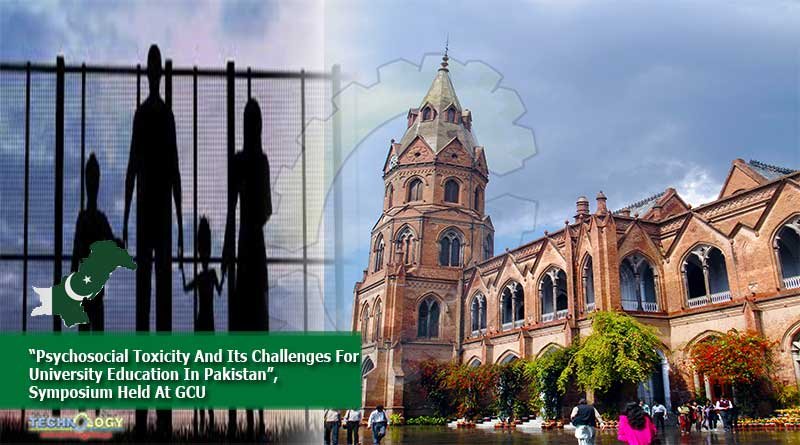A symposium on “Psychosocial toxicity and its challenges for university education in Pakistan” was held at the Government College University (GCU) on Thursday in collaboration with the University of Sussex, UK, and Changing Hearts and Minds Program Pakistan (CHAMP).

The keynote speaker for the event, Emeritus Consultant Psychiatrist Prof. Dr. Shakil Jehangir Malik, highlighted the causes of psychosocial toxicity present within the society. He said that wars, terrorism, violence, disasters, conflicts, inequality, injustice, self-serving political and religious leadership, loss of civic values, breakdown of family structure, intolerance, crime, drugs, and pandemics positively contribute towards the psychosocial toxicity.
He added that “our children are traumatized; ineffective methods of teaching, the content shown on news and entertainment media, and excessive use of digital devices are adding fuel to fire.”
Prof. Malik expressed that pedagogy and neurosciences were intricately linked, and quality education was their ultimate saviour. He highlighted education as a key to moral, cultural, socio-economic development. He also laid stress on teaching compassion, gratitude, forgiveness, and humility in educational institutions. He also underlined a need for a modern institute of neurosciences in Pakistan.
Vice-Chancellor Prof. Dr Asghar Zaidi said universities were a catalyst for change, and GCU wished to lead by bringing a disruptive improvement in the existing system. He said that the new education policy of GCU would focus on modern education, innovation, and research. He also discussed his strategic vision for GCU for the next four years.
Dr Zarka Taimor, a spokesperson of Punjab government, also said there was a severe crisis of mental health in Pakistan, and, as a result, each of the attendees had at least one or more affected people in their families. “We witness anxiety, depression, PTSD, panic attacks, addictions, and mental health issues in every home now,” she added. However, she also highlighted that only one psychiatrist was available to 10,000 people in Pakistan, and one child psychiatrist to 4,000,000 children.
Bishop Dr Azad Marshall, Member Punjab Assembly (MPA) Sardar Ramesh Singh Arora, Pakistan Tehreek-e-Insaf (PTI) Punjab Mr Farooq Arshad, Institute for Democratic Education & Advocacy Executive Director Mr Salman Abid and Lahore High Court Bar Association (LHCBA) former president participated in a panel discussion after the speakers’ session.
The panellists said that people should stop living in self-denial and immediately change the education system. “We need a system which can produce the human resources which can compete with technology,” they said.
The last session of the symposium was a workshop which covered important topics of what training and incentives are necessary for teachers and mentors at a university, and what challenges Pakistan needs to overcome for institutional development.
the article is originally published at Pakistan today.
